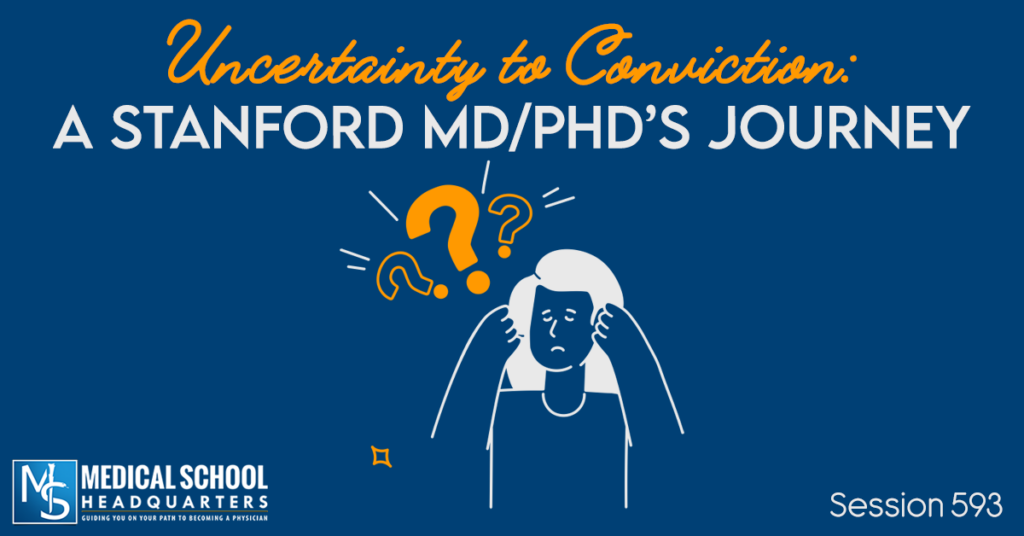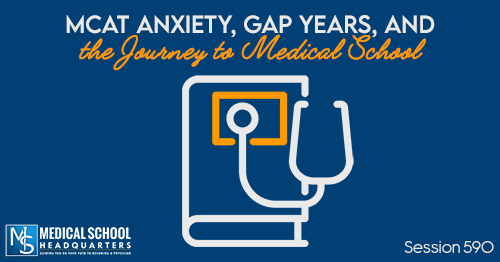I just did a web search for “Why go to a DO school?”
The top two results that I received:
- “Reapply or go to DO school?”
- “Why are Osteopathic medical schools treated like the plague?”
I’m sure you could search “MD vs DO” and get similar results. I’ve talked about some of the cut-and-dry basics of the DO vs MD discussion already here.
In the interview that I had with ATSU KCOM, I asked what they thought about this general sentiment of “My grades aren’t good enough for an MD school, so I should go to a DO school instead.” Their response:
A little disappointment actually, because the curriculum is the same, so it’s not any easier than any med schools out there. But I do feel a little disappointment, and I even interviewed a kid the other day who iterated that. He said, “Well my dad, who is a physician, said, ‘Your grades aren’t good enough, try a DO school.'”
The osteopathic philosophy
I often see the following statements from premed students about why they are leaning towards going to an osteopathic school:
“I like the osteopathic philosophy of prevention.”
or
“I like the holistic approach of osteopathy.”
Yet, 4 years from now, those same graduating DOs are going into surgery, dermatology, emergency medicine, or internal medicine with a cardiology fellowship, where for the most part prevention goes out the window and they are treating acute disease just like the MDs.
I recently saw a push that was made a few years ago to change the DO degree to something like “MD, DO (Doctor of Medicine, Diploma in Osteopathy)” to stop the confusion and show the public that DOs are in fact the “same” as MDs, just with additional training on top. It failed. I’m glad it did.
Don’t get me wrong: I do believe DOs are on the same level as MDs. But I think if you’re going to make an argument for the “holistic” and “preventative” philosophy as reasons to go to a DO school, then they should truly be different.
[Related episode: Should I Apply to Both MD and DO Schools?]
The origins of osteopathic medicine
This was the basis on which Andrew Taylor Still created the osteopathic field in the first place:
“that science which consists of such exact, exhaustive, and verifiable knowledge of the structure and function of the human mechanism, anatomical, physiological and psychological, including the chemistry and physics of its known elements, as has made discoverable certain organic laws and remedial resources, within the body itself, by which nature under the scientific treatment peculiar to osteopathic practice, apart from all ordinary methods of extraneous, artificial, or medicinal stimulation, and in harmonious accord with its own mechanical principles, molecular activities, and metabolic processes, may recover from displacements, disorganizations, derangements, and consequent disease, and regained its normal equilibrium of form and function in health and strength. – Still, Andrew Taylor (1908). Autobiography of A.T. Still. Kirksville, Missouri. pp. 91–93, 97–98, 403.
When I was still a premed, I was very interested in the DO field; having an exercise physiology background, it seemed to fit very well. But I also knew that, at the time, I wanted to be an orthopod—which would not have been easy as a DO—and which honestly doesn’t fit with the above statements of “preventative” and “holistic,” because it’s surgery.
A surgeon cuts, sutures, removes and heals what is broken. There is nothing preventative about it. A torn meniscus is not healed with hip surgery because that is where the meniscus injury came from.
A surgeon cuts, sutures, removes and heals what is broken. There is nothing preventative about it.Click To TweetShould DOs differentiate themselves further from MDs?
If there is an argument to be made, it would be to differentiate the fields even more. If a DO truly wants to be dignified as a physician who treats holistically and prevents disease, they should go into a specialty (or lack thereof) where you can actually do that.
Osteopathic Manipulative Therapy (OMT) is the great differentiator between DOs and MDs. I’ve worked side-by-side with DOs and have had patients request the DO because of OMT. But how does a dermatologist or emergency room physician use OMT in their practice?
Osteopathic Manipulative Therapy (OMT) is the great differentiator between DOs and MDs.Click To TweetDOs and primary care
The primary care specialties of family practice, pediatrics, internal medicine (without the cardiology fellowship) and a specialty like physiatry (PM&R) are the perfect fields for osteopathic physicians and the use of OMT. Pathology most definitely is not (I’m not quite sure how OMT would work on a corpse).
Obviously, the ACGME and AOA do not share this opinion with me, as they are looking to merge the post-graduate training for DOs and MDs.
Again, I truly believe osteopathic physicians are on a level playing field with their allopathic physician colleagues. There is no doubt about it. I’ve been surrounded by and have worked with great DO trauma surgeons, radiologists, and others, but I think to stand out, DOs should truly stand apart.
Here are just some of my thoughts:
- If you are going to merge post-graduate training for DOs and MDs, then don’t have two degrees. Get rid of the DO degree name. Make every school an MD school.
- Make Osteopathy a fellowship, like cardiology or pulmonology. This would allow the students who want the “holistic” and more “preventative” education and background to pursue that directly.
- If you truly want to be different and keep the DO degree, then stand for the core values that A.T. Still stood for. DOs should not go into surgery. They should not go into anesthesia. They should not go into dermatology, radiology, emergency medicine or any other specialty that doesn’t allow them to use OMT to it’s fullest potential.
- We (as a collective community, and especially the premed crowd) need to stop viewing DO schools as being on a second tier. Just because the average GPA and MCAT scores are lower does not mean they are second-tier schools. It just means they don’t put as much weight into those scores as most MD schools do.
- The public needs to be better educated on the values and benefits of an osteopathic physician. The AOA needs to start educating the public with marketing campaigns (anything has to be better than Pfizer pushing more erection pill commercials).
Do you agree? Disagree? Let me know. Come join the Premed Hangout (our Facebook group) and leave a post with your thoughts!
Premeds need to stop viewing DO schools as being on a second tier.Click To TweetLinks and Other Resources
- Check out my Premed Playbook series of books (available on Amazon), with installments on the personal statement, the medical school interview, and the MCAT.
- Related post: MD vs DO: What Are the Differences (And Similarities)?
- Related episode: DO vs Carribean Medical School: What Should I Do?
- Need MCAT Prep? Save on tutoring, classes, and full-length practice tests by using promo code “MSHQ” for 10% off Next Step full-length practice tests or “MSHQTOC” for $50 off MCAT tutoring or the Next Step MCAT Course at Blueprint MCAT (formerly Next Step Test Prep)!






